Physician ensures that 103-year-old patient gets needed heart procedure
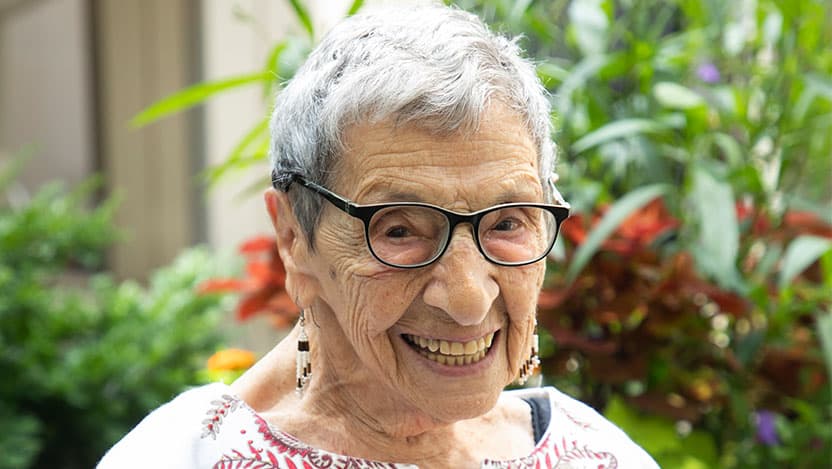
When a 103-year-old woman is short of breath after climbing 23 flights of stairs, a doctor's first impulse might be to chalk it up to old age. Some might even question if she’s telling the truth.
But when Beatrice “Bea” Lumpkin, 103, told this to Jason Alexander, MD, her primary care physician at the University of Chicago Medicine, he took her complaint seriously.
Lumpkin is regularly hailed by the Chicago Teachers Union for her activism. At age 92, the former Chicago Public Schools teacher published her autobiography, “Joy in the Struggle: My Life and Love.”
Alexander arranged for Lumpkin to have an echocardiogram, which confirmed a severely narrowed heart valve. Left untreated, Lumpkin could have developed heart failure.
Now doctors had to decide what type of surgery she should have. Alexander asked his trusted colleague, cardiologist Jeanne DeCara, MD, if she would evaluate his 103-year-old patient for a Transcatheter Aortic Valve Replacement (TAVR), a minimally invasive procedure to replace aortic valves.
Since only a few people in the U.S. over age 100 have had a TAVR, Alexander started his conversation with DeCara by saying, “Hear me out.”
Alexander shared his thoughts on why Lumpkin was a good candidate for a TAVR, despite her age. She was physically and mentally active, had no serious health problems and had a strong support group of family and friends — including children who are physicians — who could help with her recovery.
Still, DeCara wondered whether she was strong enough to handle the procedure. At their first appointment, Lumpkin described her activities: taking the stairs; walking one to two miles a day; stretching; and occasional aerobics. To prove her physical ability, Lumpkin executed a karate kick in DeCara’s office.
That was, well, the kicker.
DeCara and interventional cardiologist Sandeep Nathan, MD, MSc reviewed Lumpkin’s case and determined TAVR was her best — and only — option. Open-heart surgery would be too risky for someone her age. The TAVR procedure was performed in May 2022.
“She’s not someone who’s done with life. She’s got things to do, people to see and places to go,” DeCara said.
A decision to perform an TAVR on an elderly patient usually involves assessing “mortality benefit,” the ability to improve both the length of a person’s life and alleviate symptoms.
“In this case, discussing mortality benefit was kind of silly. As someone who was 103, she was already 25 years past her natural life expectancy. But if she’s still active and would like to be able to walk her flights of stairs comfortably, then why not?” Nathan said.
TAVR — a procedure to replace the aortic valve, done through two small groin punctures — would still have risks for Lumpkin. Yet UChicago Medicine’s cardiology team is known for taking on high-risk heart disease cases.
For example, Nathan and his team recently performed a successful TAVR on a medically complex patient in her late 90s. She had left her long-standing cardiologist at a different hospital to come to UChicago Medicine for a TAVR. Her surgery went smoothly, she was released from the hospital two days later and has since made a full recovery, Nathan said.
“It’s still a big procedure and lots of things can go wrong. Even in the best of scenarios. With someone that age, there’s a small but quantifiable risk of major complications or even death,” Nathan said. “And if you don’t have the ability to rehab from the procedure, then it’s essentially for nothing. You do have to have some resilience and ability to rebound.”
In Lumpkin’s case, there were “some added curveballs” due to her slight frame and small, "folded" arteries due to her age.
“No matter how robust people are, age is still a factor,” Nathan said. “We proceed very, very cautiously and slowly to minimize any complications.”
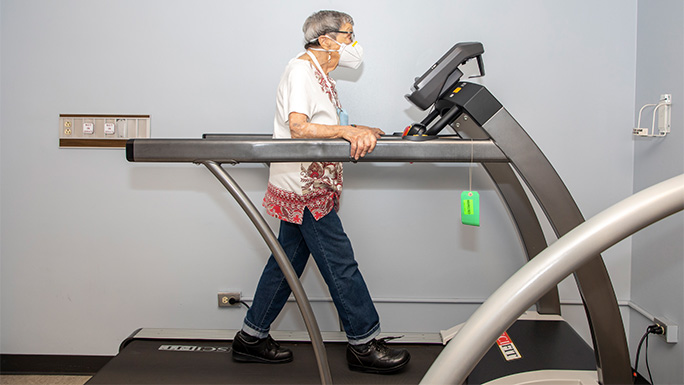
Lumpkin’s surgery was a success. She did so well that during her two-night hospital stay, she grew frustrated when a physical therapist wouldn’t let her walk additional laps around the hospital unit, Nathan said.
Lumpkin, who turned 104 in August, has returned to her passions: fighting for the environment and workers’ and teachers’ rights. She’s “the star of cardiac rehab,” where she goes twice a week through October. She also was chosen to serve as Grand Marshal of the Chicago Labor Day Parade on September 3.
Lumpkin and Alexander agree that good primary care is critical to a person’s health and getting proper diagnoses.
“I have 100 patients who say they have shortness of breath. There’s a lot of nuance to deciding what they need. Good primary care is someone who can help navigate that. If we can get you to the right person, we can diagnose you quicker and get you the help you need,” Alexander said.
During an interview this summer, where Lumpkin wore an Apple watch and carried a copy of The New York Times, she said she was feeling great and planning for the future, including more activism and working on a multicultural mathematics curriculum (she spent many years as a CPS and Malcolm X College math teacher).
She has resumed frequent 23-story stair climbs to her apartment.
“I’m slower, so it takes longer, but I’m working on it,” she said with a smile. “The therapy is work, so some people don’t do it. You have to be willing to do the work. I do it because I feel better.”
Lumpkin said she’s grateful to Alexander for making sure she received the care she needed. She’d never had a heart problem before in her life until now.
“He didn’t say, “What do you expect at this age?’ He took it very seriously,” she said. “I feel very lucky. The kind of advanced medicine that made it possible for me to have this procedure should be available to anyone who needs it. And I know that’s not the case. I’m especially lucky to have such a great team working on me.”
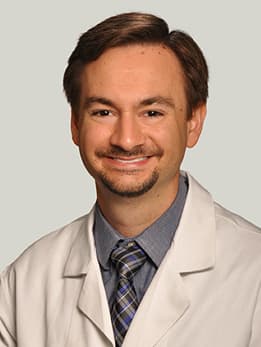
Jason Alexander, MD
Jason Alexander, MD, is a primary care physician with UChicago Medicine.
Learn more about Dr. Alexander
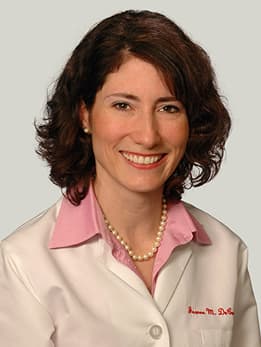
Jeanne DeCara, MD
Jeanne DeCara, MD, is a general cardiologist who treats patients with a variety of heart problems, such as coronary artery disease, heart failure, heart valve problems, abnormal stress tests, hypertension and hypercholesterolemia.
Learn more about Dr. DeCara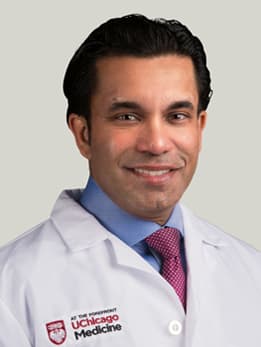
Sandeep Nathan, MD
Dr. Sandeep Nathan is a highly skilled cardiologist who specializes in interventional cardiovascular procedures.
Learn more about Dr. NathanHeart and Vascular Center
From advanced diagnostic technology to minimally invasive treatments and robotic surgery, the University of Chicago Medicine can provide the full scope of care for any type of heart or vascular disorder in adults and children.
Explore our Heart and Vascular Center
